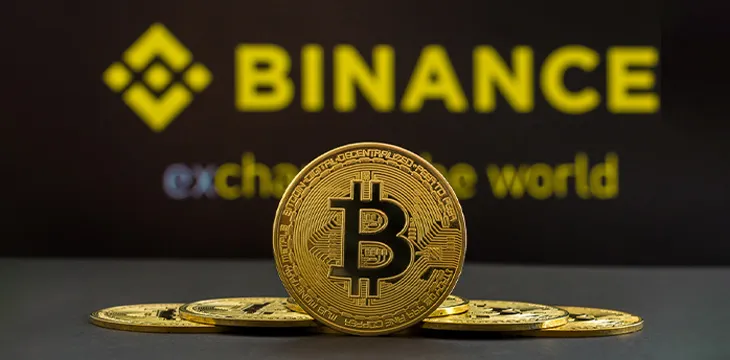|
Getting your Trinity Audio player ready...
|
Internal messages between Binance executives cast more doubt on the alleged independence of the Binance.US digital asset exchange.
On Sunday, the Wall Street Journal reported on internal communications that poke larger holes in Binance’s oft-repeated assertions that the Binance.US exchange is an independent entity free from the international site’s influence. Binance claims the U.S. site merely licenses the international exchange’s technology and brand.
However, these claims were exposed as an elaborate subterfuge as early as 2020, when Forbes reported on Binance’s illegal ‘Tai Chi’ strategy. Bam Trading Services, the company that controls Binance.US, is controlled by Binance’s controversial founder Changpeng ‘CZ’ Zhao.
Despite Binance’s denials, Reuters subsequently confirmed the existence of the Tai Chi strategy, which involved setting up a supposedly independent, regulatory-friendly U.S.-licensed operation to distract attention from Binance.com’s ongoing reliance on U.S. customers for a significant chunk of its business.
The Journal’s new revelations include frantic messages from a Binance software developer in September 2019 after a Shanghai-based staffer mistakenly allowed trading on Binance.US ahead of the exchange’s scheduled launch. CZ replied that the culprit was “a guy here in Shanghai, mistake operation.”
The Binance.US tech infrastructure was controlled from Shanghai until at least mid-2021, and the Shanghai software team was contracted by the international Binance, not the U.S. version. A Binance.US spokesperson told the Journal that U.S. customer data was stored in the U.S., and there was no commingling of user data between the two allegedly independent entities.
But one month before Binance.com allegedly cut off its U.S. customers, Binance’s then-Compliance Chief Samuel Lim posted a message in a Binance chat on Telegram suggesting ways for Binance.com to retain its U.S. customers, who at the time accounted for over 18% of Binance.com’s page views. Among Lim’s suggestions for U.S. customers? “Have them be creative and VPN [virtual private network].” Lim also suggested that U.S. customers could continue to access Binance.com via ‘offshore entities.’
Around the same time, CZ stated in a since-deleted tweet that he considered VPNs “a necessity, not optional” tool for accessing the internet. Oddly enough, Binance’s ‘Tai Chi’ strategy also made note of the importance of “strategic treatment of VPN use at Binance.” And in mid-2020, the Binance Academy educational tool published a handy guide detailing the benefits VPNs offered.
Wag the dog
Last month, Reuters revealed that CZ had more control over Binance.US’s bank accounts than the latter company’s CEO. Over the first three months of 2021, Binance transferred $404 million from Binance.US accounts at California’s Silvergate Bank to a CZ-controlled company, leading the then-CEO of Binance.US Catherine Coley to contact a Binance.com exec to complain that “no one mentioned” these “unexpected” transfers to Binance.US staff.
Publicly, Coley claimed that Binance.US was “a very separate entity” from Binance.com. But the Journal quoted Coley reminding Binance.US staff in a late-2019 Telegram chat to submit progress reports on time “so we can be in the good graces” of Binance’s then-Chief Financial Officer Wei Zhou. Coley also instructed her team to submit “2-5 bullet points of what we think CZ/Wei should know about your work this past week.”
In January 2020, ahead of a mixed Binance/Binance.US ‘retreat’ at a South Korean ski resort, Coley instructed her staff to think about “your shackles (items of your job that require [Shanghai] answers, access, approval, funding).” The Journal noted that this strongly suggests Binance.com exerted authority over at least some of the Binance.US budget.
The Journal also details one problematic incident in which a staffer created a Google Form for new Binance.US customers, but the form used a Binance.com account and the staffer had difficulty changing it to Binance.US.
Harry Zhou, the architect of Binance’s ‘Tai Chi’ strategy, took to Binance’s Telegram channel to call the Google Form gaffe “particularly concerning here because this form has to do with opening client accounts. If I were an [attorney general], I would cite this as evidence that it is in fact Binance, an ‘unregistered foreign-based [money services business]’ onboarding the US clients.”
Zhou won praise from Binance’s then-CFO Wei Zhou for reminding employees to avoid mimicking a Binance.com ‘tone’ when writing copy that would appear on Binance.US. Wei Zhou concurred, urging staff to “sit in ‘Binance.US’ shoes when drafting.”
Senatorial smackdown
The cockup with the Google Form led Harry Zhou to warn that the apparent lack of distance between Binance and Binance.US “can be cited as direct evidence for corporate veil piercing in an adversarial judiciary proceeding.”
Piercing the corporate veil is a legal mechanism by which the concept of limited liability can be set aside, meaning shareholders can be held liable for the actions of that corporation. This practice is generally applied when a company is incorporated for an illegal, fraudulent, or improper purpose, or when a corporation is set up as an alter ego of a parent corporation.
This brings us to the letter sent last week to both CZ and Binance.US CEO Brian Shroder from a bipartisan trio of U.S. Senators: Elizabeth Warren (D-MA), Chris Van Hollen (D-MD), and Roger Marshall (R-KS); the letter sought information from the pair amid “growing concerns over the finances, risk management, and regulatory compliance of Binance, Binance.US, and other related entities.”
The letter summarizes CZ’s historic aversion to regulatory compliance, making the public perceive Binance as “a hotbed of illegal financial activity that has facilitated over $10 billion in payments to criminals and sanctions evaders.”
The letter also notes that CZ’s “assertion that Binance.US is fully independent is eerily similar to claims Sam Bankman-Fried made regarding the distinction between FTX.US and FTX—claims that appear to be false, given that FTX.US has filed for bankruptcy, its users have lost access to their funds, and its new CEO has declared that it is, in fact, insolvent.”
The senators requested a long list of information from CZ/Shroder, including “complete copies of all written policies and/or procedures regarding the relationship between Binance and Binance.US,” along with “a complete list of any and all U.S.-based platforms that have, at any point, utilized Binance.com for trading services, lending services, or any other products or services.”
The senators also sought “complete” copies of balance sheets belonging to Binance and subsidiaries; accurate numbers on Binance.US users; any and all documents related to the Tai Chi strategy; and internal documentation on anti-money laundering, know your customer and countering financing of terrorism procedures.
The letter requested a response by March 16. The missive was accompanied by a press release detailing how “Binance and its related entities have purposefully evaded regulators, moved assets to criminals and sanctions evaders, and hidden basic financial information from its customers and the public.”
In response, Binance issued its by-now standard statement that “Binance.com does not operate in the U.S., nor do we have U.S.-based customers,” while offering only a vague pledge to “provide information to help [the senators] better understand” why Binance is so successful. In other words, here’s some fluffy PR that never answers your questions but buys us a little more time to continue fleecing our flock before any Interpol red notices are issued.
Gosh, Gary…have you been working out?
Perhaps the most intriguing of the Journal’s revelations was that in 2018 and 2019, Binance made multiple attempts to entice Gary Gensler—then chairman of the U.S. Commodity Futures Trading Commission (CFTC) and currently chairman of the Securities and Exchange Commission (SEC)—into becoming a paid Binance adviser.
The Journal qualifies that Binance wasn’t alone in trying to lure Gensler into their crypto camps, but CZ reportedly secured a personal meeting with Gensler in Tokyo in March 2019. Gensler later conducted a video interview with CZ for a cryptocurrency course at the Massachusetts Institute of Technology, when Gensler was an instructor at the school.
Regardless, Gensler has since become the biggest regulatory thorn in crypto’s side, including the SEC’s efforts to prevent Binance.US from acquiring the assets of bankrupt crypto lender Voyager Digital. Last week, the SEC cited “investigations into the purchaser and its affiliates” in an objection filed with the bankruptcy court overseeing Voyager’s potential acquisition.
During a hearing into the proposed acquisition, SEC attorney William Uptegrove told Judge Michael Wiles that SEC staff believe that “Binance.US is operating an unregistered securities exchange in the United States.” While Uptegrove cautioned that the staff’s view was not necessarily the SEC’s official position, Gensler has gone on record saying he believes most digital assets qualify as securities, and thus exchanges need to register as national securities exchanges.
CZ petulantly reacted to this brushback by tweeting, “Maybe we should pull out?” Apparently, CZ forgot that it was the supposedly independent Binance.US that had agreed to acquire Voyager. Thus there should have been little to no role for an international CZ-run company that only licenses its technology and brand to Binance.US.
FORE!
It seems inevitable that U.S. authorities will employ the broad latitude afforded by the Racketeer Influenced and Corrupt Organizations (RICO) Act to impose not merely a financial penalty but an actual custodial sentence on CZ and other Binance figures. The nose-thumbing has been too flagrant and gone on far too long for Team America to sit idly by.
The authorities have clarified that their main ‘crypto’ concern is minimizing the further impact on average Americans and the mainstream financial sector. Undeniably, some small-scale ‘investors’ will get burned in the process, but the authorities appear to believe they’re only advancing the hands on this clock, i.e., these investors would have got rugged eventually, so might as well get it over with before anyone else gets sucked into the void.
CZ’s response to Sunday’s Journal report was a simple ‘Remember 4’ tweet, referencing his four-point new year’s resolution, in which ‘4’ was a pledge to “Ignore FUD, fake news, attacks, etc.” But CZ never actually rebuts the specifics of supposed fake news. He just insists that Binance is the most compliant, most honest, sweetest smelling, and most handsome exchange going. Still, as the venerable Christopher Hitchens observed: that which can be asserted without evidence can be dismissed without evidence.
But perhaps there’s another explanation. As someone who spent his first 12 years in China, CZ would understand that the number four is a homophone for the Chinese word for ‘death.’ Maybe CZ is signaling that he knows the jig is up and the long overdue death of the speculative crypto casino model is finally upon us. Perhaps we could restore Bitcoin’s original vision of cost-effective peer-to-peer electronic cash and finally get back to building, not betting.
Follow CoinGeek’s Crypto Crime Cartel series, which delves into the stream of groups—from BitMEX to Binance, Bitcoin.com, Blockstream, ShapeShift, Coinbase, Ripple,
Ethereum, FTX and Tether—who have co-opted the digital asset revolution and turned the industry into a minefield for naïve (and even experienced) players in the market.

 05-08-2025
05-08-2025 





